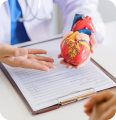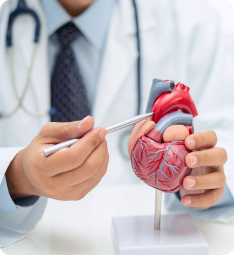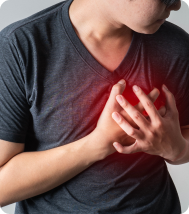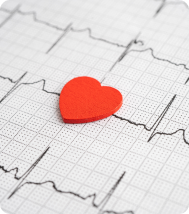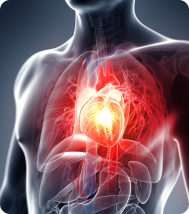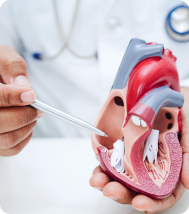Heart (cardiovascular) disease refers to a range of conditions affecting the heart and blood vessels.
One of the
primary causes is atherosclerosis, a condition characterised by the narrowing and hardening of arteries
due to
plaque buildup, typically from high cholesterol levels. This plaque can eventually obstruct blood flow
to the heart,
resulting in complications like chest pain or heart attacks.
Coronary Artery Disease (CAD):
Blocked arteries due to fatty deposits or plaque buildup reduce blood flow to the heart, increasing the
risk of heart attacks. Symptoms may include chest pain, shortness of breath, and fatigue.
Heart Failure:
The heart weakens and is unable to pump blood effectively, leading to fluid build-up (oedema) and
impaired organs and tissues. It often results from other conditions like CAD, heart valve issues, or
hypertension.
Arrhythmias:
Abnormal heart rhythms caused by disruptions in the electrical signals that regulate the heartbeat.
Symptoms may include heart palpitations, dizziness, and shortness of breath.tissues. It often results from other conditions like CAD, heart valve issues, or
hypertension.
Heart Valve Disease:
Damage to the heart valves can cause blood leakage or obstruction, impacting blood flow. Symptoms may
vary depending on the specific valve and severity.
Certain factors increase the risk of heart disease. These include:


